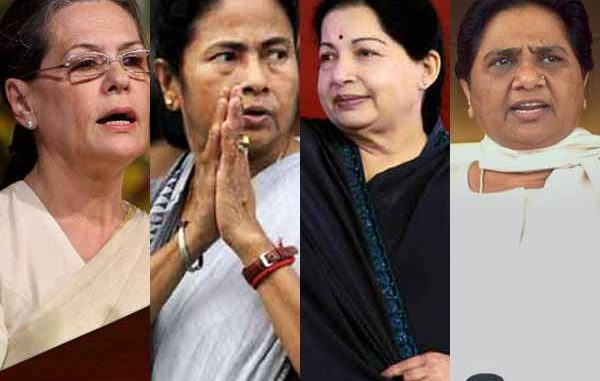
By Maria Thomas
In both the upper and lower houses of parliament, women hold just under 12% of seats each, according to data from the Inter-Parliamentary Union, a global organisation of national parliaments. Ranked 148 out of 189 countries, India lags far behind even neighbouring nations such as Bangladesh and Pakistan. And the bill to improve this situation by reserving a third of seats for women has been languishing in the lower house for years.
But research shows that there’s an economic case for electing more Indian women to power at the local-level.
A working paper by researchers at the universities of Essex, Michigan, Siegen, and Youngstown has found that Indian constituencies that elected women recorded “significantly higher growth” in economic activity over those that elected men.
The paper written by Thushyanthan Baskaran, Sonia Bhalotra, Brian Min, and Yogesh Uppal looks at 4,265 state assembly constituencies across India between 1992 and 2012, focusing on those where the woman candidate’s margin of victory was very small. This let the researchers look at cases where the legislator’s gender was effectively randomly assigned and not influenced by factors like a generally progressive constituency.
Then they analysed the effect of legislators’ gender on the constituency’s economic performance. In the absence of other constituency-level economic data like GDP, they used the change in night-time lighting as a proxy parameter.
It was found that when a constituency elected a woman with a small margin, the growth in annual luminosity over an electoral term was 15.25 percentage points higher than that of seats that elected a man. This translates to a 1.85 percentage point difference in annual GDP growth, according to the findings.
“Given that average (GDP) growth in India during the period of study was about 7% per year, our estimates indicate that the growth premium for constituencies stemming from their having a female legislator is about 25%,” the researchers write.
What makes the difference?
In close elections, the key difference between candidates was that women were less likely to have criminal charges pending against them, the study found. Citing another paper that showed that criminality negatively affected luminosity growth in India, the researchers argue that this could explain the difference in economic performance.
“It seems plausible that legislators with a criminal record are more likely to practise corruption, to have priorities other than economic development, and, possibly, are less likely to provide a stable business environment,” they write.
The researchers also looked at corruption and found that the net assets of women legislators grew less while in office than those of men, suggesting that women were less likely to be corrupt than men, a factor that can definitely play a role in a constituency’s economic performance.
To explore how exactly women legislators affect public-good delivery, the paper then looked at the construction of road infrastructure under the Pradhan Mantri Gram Sadak Yojana, a nation-wide scheme to improve road connectivity. Women legislators were found to be more effective than men in completing road projects, i.e., creating infrastructure for growth—for everyone.
Of course, there are limitations to the paper’s approach.
“Since we focus only on a fairly narrow set of constituencies (those that have close mixed-gender races) it is not clear whether we can generalise our results to constituencies with mixed-gender races where the race was not close or to constituencies where there was never a competitive women candidate (the majority of constituencies in India),” co-author Thushyanthan Baskaran told Quartz in an email.
Another issue is that there could be many other reasons, beyond the propensity towards corruption and criminality, why women-led constituencies perform better.
However, the results do offer an alternate way to think about increasing the political representation of women. If voters can be given accurate information about how women do their job compared to men, they might just consider putting them in power on their own.

Leave a Reply